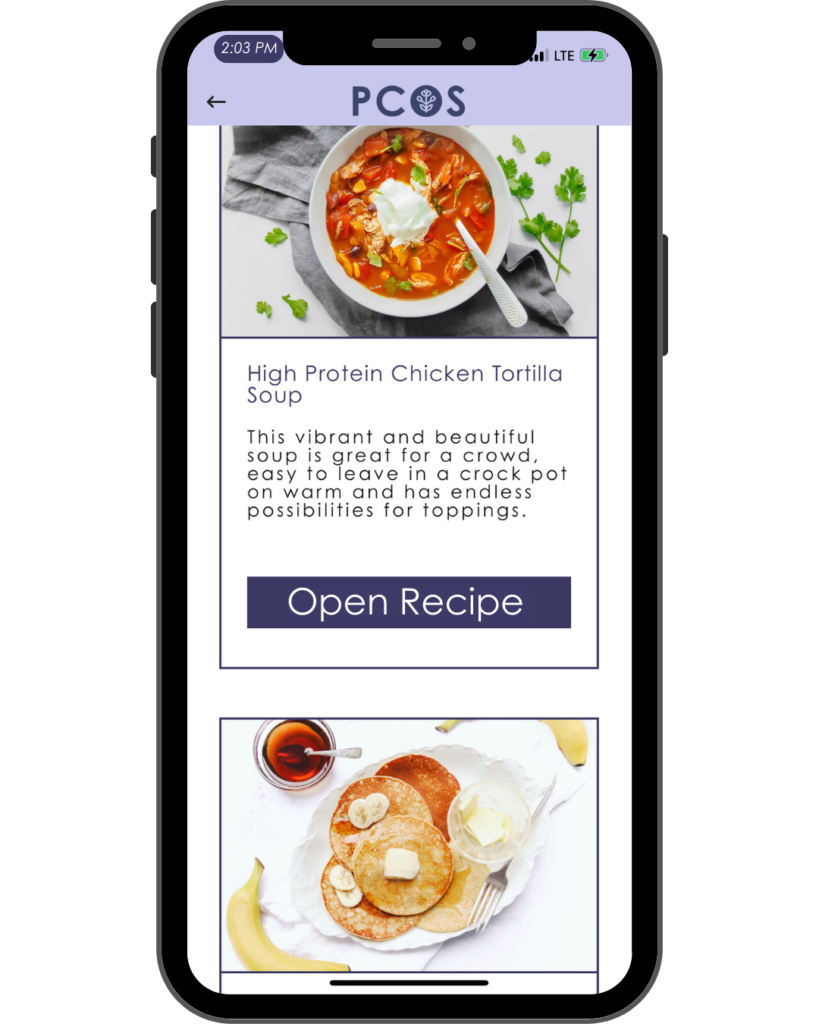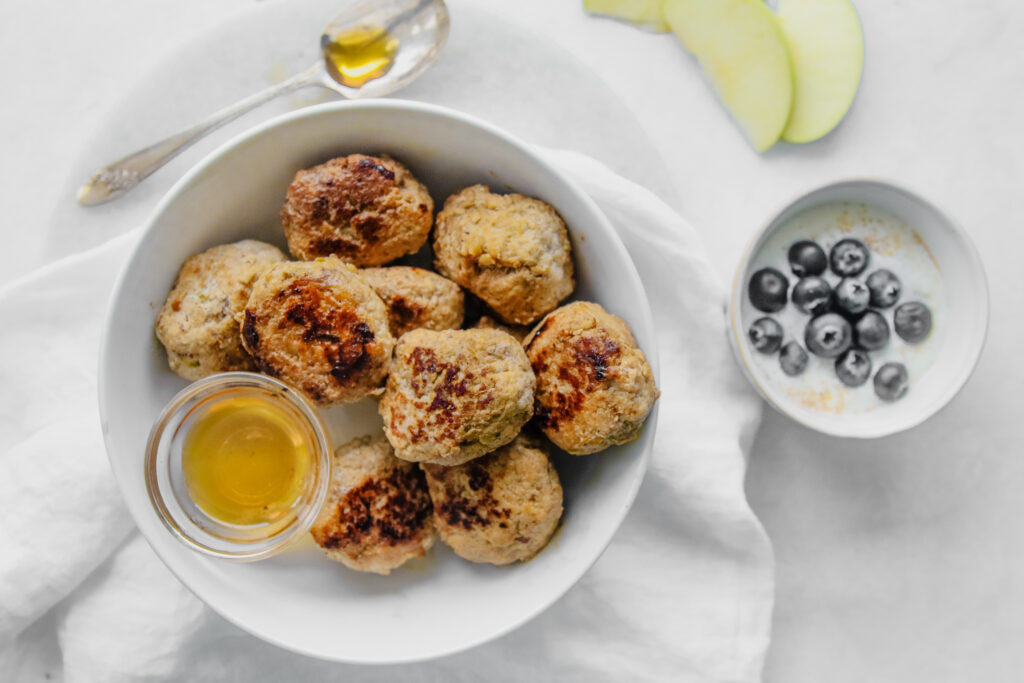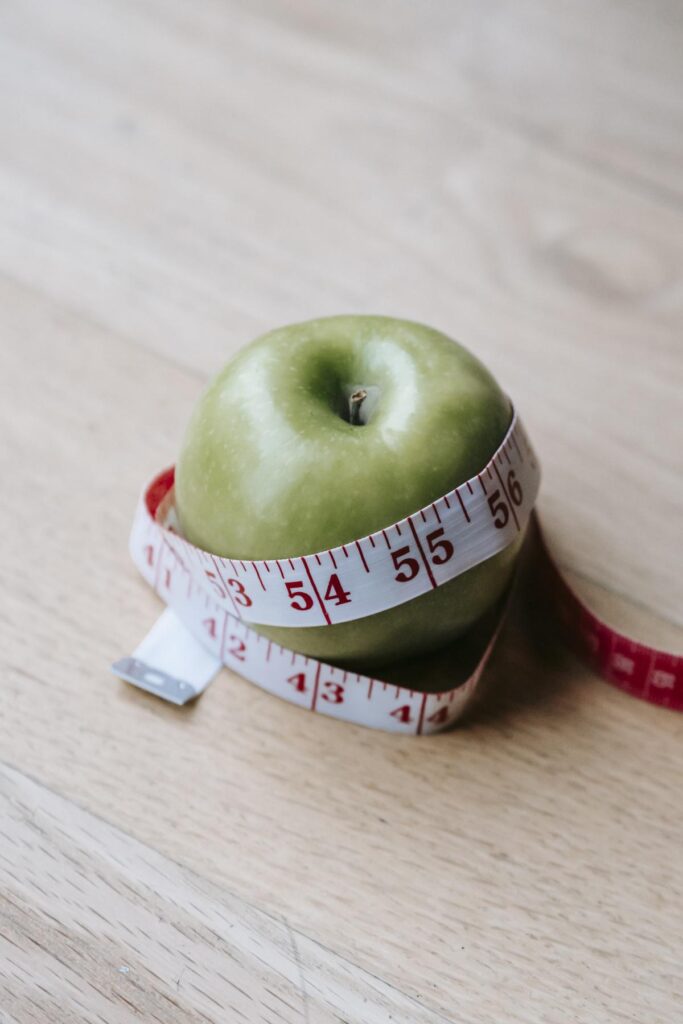at a glance
What is the Best Diet for Managing PCOS?
Table of Contents
- 01 - Why your diet matters with a PCOS diagnosis:
- 02 - Popular Diet Culture and its Impact on Women with PCOS
- 03 - Is The Mediterranean Diet Good For Women with Polycystic Ovary Syndrome?
- 04 - Is The Ketogenic Diet Good For Polycystic Ovary Syndrome?
- 05 - Is a Low-Calorie Diet Good For Polycystic Ovary Syndrome?
- 06- Is Intermittent Fasting Good For Polycystic Ovary Syndrome?
- 07- Is the DASH Diet a Healthy Diet For PCOS?
- 08- Is The Pulse Diet Good For Polycystic Ovary Syndrome?
- 09- What diet is best for you and your PCOS diagnosis?
- 10 - References
- 11 - DISCLAIMER
If you are anything like me, when you received your PCOS diagnosis, you had more questions than answers. Many of our appointments start with a recommendation to lose weight(thanks doc!) and a prescription for a diabetes drug(like metformin).
As a dietitian, I know this will not set you off with a great start. It certainly doesn’t help address the first questions that will come up after that appointment. “What the heck should I eat?”
Here are a few other questions you may be thinking:
- Why does diet even matter with PCOS?
- Shouldn’t I just take the diabetes drugs (metformin/glucophage/ozempic/semaglutide) and keep doing what I’m doing?
- I’ve tried so many diets in the past, they never work; where do I go from here?

Why your diet matters with a PCOS diagnosis:
Most women with PCOS have some level of insulin resistance. In the simplest terms, insulin resistance leads to higher androgen levels. Higher androgens(aka male hormones) increase frustrating PCOS symptoms like acne, hair loss, chin hair, lack of ovulation, and the inability to lose weight.
This is where diet comes in. By making changes to our nutritional intake, we can impact our level of insulin resistance and blood sugar driving those androgens and symptoms down.
Having a diagnosis of PCOS increases your risk of heart disease, diabetes, fatty liver disease, and other chronic health conditions. Usually, people want to make changes for the here and now (hello chin hair!). I’d like to compel you to consider your health 5, 10, or even 20 years from now as well.
With so many things out of our control in the modern world, your nutrition habits are something you can take an active role in changing and lower your risk of developing these chronic diseases while improving symptoms now, and even your fertility along the way.
Popular Diet Culture and its Impact on Women with PCOS
Diets, supplements, and the exercise/gym world is a multi-billion dollar industry. It is aimed at helping you improve your overall health, for a time, but not forever. This keeps us coming back for the next fad solution that promises extreme results and is the “secret” we’ve all been waiting for.
Do you know that the main determinant of going on a diet, is having been on one before? Meaning, you are more likely to hop on the next diet fad if you have ever dieted before.
So many of us have been on a diet to try and beat the weight gain that comes with PCOS. We are prime victims of diet culture because PCOS impacts so many areas targetting a woman’s self-esteem: hair, weight, skin, and even our ability to conceive.
This article is to help you from being found as an easy target when you see diets come and go in the spotlight.
We are going to dive into popular diets in this article, we will also discuss diets you’ve never heard of but have some amount of research tied to it and PCOS. So let’s jump into it and start with one of the most beloved diets in the medical world: the Mediterranean diet.

Is The Mediterranean Diet Good For Women with Polycystic Ovary Syndrome?
I know you hear the Mediterranean and you think of pasta and wine (girl, me too!).
That is not the basis of this meal pattern, instead, the majority of the plate is covered with large amounts of vegetables, fruit, beans, lentils, nuts, and whole grains. Protein typically comes from fish that are rich in omega-3-fatty-acids, and leaner cuts of meat like chicken, turkey, and dairy products.
There is a large focus on healthy fats including olive oil, olives, nuts, and seeds.
Red meat and highly processed foods including sugary beverages, packaged products, and large quantities of desserts are not widely consumed in the Mediterranean.
Despite what pop culture has defined for us, most people in the Mediterranean do not over consume wine or other alcoholic beverages.
The term Mediterranean Diet is a blanket term meant to describe the way different countries in the Mediterranean typically eat.
The Mediterranean diet emphasizes the importance of plant-based foods and healthy fats. Foods that are highlighted in the Mediterranean diet are plenteous in that region of the world.
What are the general benefits of the Mediterranean diet?
- Lowering risk of blood pressure, cholesterol, cardiovascular disease
- Support of blood sugars
- Aids in healthy gut microbiota
- Possibility of living longer

How can the Mediterranean Diet help PCOS?
With a limited intake of saturated fat, trans fat, refined carbohydrates, and sugars this eating pattern has the possibility to improve PCOS symptoms.
Here are five areas in this diet pattern that can more specifically address concerns with polycystic ovarian syndrome:
- Lowering inflammation– PCOS can cause inflammation which can put you at risk for heart disease, diabetes, and many other chronic diseases. Since this eating pattern is low in processed foods and high in anti-inflammatory fats it supports lowering inflammation in the body. Fats such as avocados, nuts, seeds, and olive oil are proven to reduce inflammation in the body.
- Hormone balance– The meal pattern is rich in fruits and vegetables which supply phytochemicals. Phytochemicals are compounds produced by plants that help with hormonal balance and can improve menstrual regularity and symptoms.
- Blood sugar control– The ovaries will produce more male hormones when there is a high amount of insulin in the body. The Mediterranean diet plays a role by focusing on whole grains, beans, and lentils which provide more fiber than refined grains. This can improve blood sugar levels and help decrease cravings, improving energy throughout the day. Increasing healthy fats also have a direct role in blood sugar regulation and lowering insulin levels.
- Body composition– With insulin resistance comes weight gain and difficulty losing weight. A recent study showed that PCOS women who were obese were able to lose weight when following this eating pattern.
- Fertility– Through the changes in hormonal balance, lowering inflammation, blood sugar control, and body composition we can see improved rates of ovulation and pregnancy.
What a day of eating could look like with the Mediterranean Diet?
Breakfast– Oatmeal with nuts and fruit and a poached egg on the side.
Lunch– Vegetable stir fry full of your favorite veggies like onions, peppers, mushrooms, peas, zucchini, and carrots eaten over rice with a small filet of fish.
Dinner– A nice colorful salad with tomatoes, olives, cucumber, onions, feta cheese with beans, and a vinaigrette dressing.
While we have a good amount of research on the general benefits of the Mediterranean style of eating, it’s also the lifestyle that contributes to the many health benefits.
This is a group of people that spends large amounts of the day outside, breathing fresh air and being exposed to sunlight. They are also a people more committed to walking places instead of using transportation.
Much of the research looks to control for only dietary habits, but from a larger perspective, there is more than just nutritional strategies to be gained from this regional group of people.

Thinking critically about implementing Mediterranean Dietary strategies to help you manage your PCOS:
So you’ve gotten this far, maybe you are feeling pretty good about the Mediterranean Diet. Let’s break it down with the positives and negatives.
Things I love as a dietitian for someone with PCOS:
- The focus on whole foods and plant-based eating
- Healthy fats are a large portion of the plate in this style of eating and that has many benefits for someone with PCOS
- The focus on high-fiber foods
- The wide variety of different micronutrients and biochemicals from varied plant-based foods
Areas that draw criticism or concern:
- With the high focus on plant-based whole foods, there is potential for having too little protein
- The limitation of red meats can make it difficult to reach iron needs and some other micronutrients
- If not applied correctly this pattern of eating can result in too much consumption of grains and other carbohydrates leading to hormonal imbalance
In summary – this diet pattern has many benefits and areas of strategy we can employ when designing a way of eating that is sustainable and supportive for your body. You can use this pattern as a starting point, add more protein, and put your own twist on it!
Is The Ketogenic Diet Good For Polycystic Ovary Syndrome?
The ketogenic(keto) diet is a low-carb diet that focuses on consuming most calories from protein and fat and limiting carbohydrates. This diet has gained a lot of publicity and popularity of late.
Really it’s just a newer version of the Atkins diet with a fat-focused flare. It was originally designed for children with epilepsy so that their brains could be fueled by ketones rather than blood glucose.

Switching the primary fuel within the body from blood glucose to ketones is an inefficient process. It requires more calories than it can provide and thus can result in weight loss. This process is referred to as ketosis.
Foods included in the keto diet consist of chicken, beef, pork, fish, and many foods rich in saturated fats like processed meats and butter.
I’m sure you have a friend or family member who has tried this diet lately. I have visions of bacon-wrapped-cream-cheese-stuffed-jalepenos dancing in my head.
It does limit carbohydrates greatly, like less than 5-10% of calories. Limiting foods like white bread, rice, fruit, soda, and desserts.
What are the general benefits of keto?
- Potential for weight loss
- Improve insulin sensitivity and resistance
- Appetite control
- Possibility to treat chronic illnesses
How can the keto diet help PCOS?
Research has discussed the possibility of the benefit of the keto diet through decreasing insulin and androgen levels.
- Increasing insulin sensitivity– by limiting carbs and increasing fat and protein there is a general decrease in blood sugar levels. This trickles down to a decrease in insulin secretion.
- Weight loss/fat mass– The inefficiency of accessing calories when in ketosis can help support weight loss while decreased insulin levels also make the body more readily mobilize fat stores.
- Normalizing the ratio of luteinizing hormone (LH) and follicle-stimulating hormone (FSH)- normalizing gonadal sex hormones can improve ovulation and fertility.
There is not enough research on the keto diet and PCOS. Greater investigation is still needed. Most dietitians are hesitant to recommend this diet even with some promising proposed mechanisms for PCOS. Let’s dig into that.

Thinking critically about implementing ketogenic strategies to help you manage PCOS:
Things I love as a dietitian for someone with PCOS:
- Improving cravings and appetite
- Feeling more satisfied(full) after meals
Some of the areas that draw criticism or concern:
- There are huge gaps in micronutrients and fiber in this eating pattern
- While there is a beneficial inefficiency in calorie burn, it isn’t a sustainable pattern of eating – meaning weight loss obtained while on this diet will not be permanent when you are tired of eating all that bacon
- Very low-carb diets can put undo stress on adrenal glands which are often already struggling to function well in a PCOS individual
- Some studies also shed light that the initial benefits of insulin resistance that improve on keto are not realized in the long term
- Very high intake of saturated fats without large amounts of fiber can be detrimental to health long term
Did you notice the difference in the length of the lists?
What eating keto might look like in a day:
Breakfast: Pork bacon with scrambled eggs cooked in butter with feta cheese on top, coffee with heavy cream
Lunch: An open-faced burger with lettuce instead of a bun, some avocado, mayonnaise, and a mixed greens salad with cherry tomatoes, cucumber, and lemon juice
Dinner: A source of protein like steak, hot dogs, pork with a veggie on the side (green beans, broccoli, kale, collard greens)
Snacks: Celery sticks with almond butter

Is a Low-Calorie Diet Good For Polycystic Ovary Syndrome?
Eating less food than your body needs every day is the most common type of dieting.
This can be accomplished by focusing on your eating habits, less food or by increasing your metabolic burn. Fewer calories consumed than calories needed for the work the body does.
It may surprise you that this type of eating has the most research attributed to it and the treatment of PCOS.
When searching the research you won’t type in “low calories” but instead “hypocaloric diet.” This comes from the Latin term ‘hupo’, meaning under. Essentially – under-calorie eating.
The hope is that by eating less food than your body needs to sustain itself, you will see weight loss.
There are no specific foods in this type of eating just an overall emphasis on eating less.

What are the general benefits of a hypocaloric diet?
- Helps with weight control or weight loss
- Has the potential to improve blood sugar levels
- Over time with weight loss, this type of eating can decrease androgens
- Boosts mood and wellbeing
- Reduction of inflammation
- Can help reduce cholesterol levels
How can a lower-calorie eating plan help PCOS?
- Lower insulin levels: When you consume fewer calories than your body needs, it will turn to adipose(fat) tissue for energy. As this happens it can improve insulin responsiveness and lead to lower levels of insulin altogether.
- Weight loss: While you can lose weight by eating fewer calories, sometimes it can be frustrating that you aren’t losing as much as you would expect. In the research, a hypocaloric diet does yield weight loss. However, when you dig into that research we often find that women with PCOS have lower metabolic rates compared to age-matched controls without a PCOS diagnosis. Obtaining a calorie intake lower than your metabolic burn can require a large amount of restriction. It’s important if choosing to cut calories to do so with some data to help direct these changes.
- Regulation of ovulation: Studies have suggested that weight loss achieved through a hypocaloric diet may lead to a decrease in androgen (male hormone) hormones. This is significant for women with PCOS, as elevated androgen levels are a characteristic feature of the condition and impact ovulation greatly.
- Lowered Risk of Metabolic Complications: PCOS is associated with an increased risk of metabolic disorders such as type 2 diabetes and cardiovascular disease. Weight loss achieved through a hypocaloric diet, particularly if it leads to improved insulin sensitivity, can help mitigate these risks.

A day in the life of low-calorie diet:
*** There is no specific plan for this diet. The major focus is to make sure you are eating fewer calories than your metabolism requires for maintenance.
I would consider eating similar foods but starting with portion size reductions if this diet is appealing to you. Then after your body adjusts to the portion changes, start making intentional changes to increase protein and vegetables in your diet.
Thinking critically about implementing a hypocaloric diet strategy to help you manage your PCOS:
It's very easy to end up focusing on restricted dieting and get very caught up with the calorie numbers. This can lead to limiting certain foods or amounts of healthy foods along with needed nutrients because of the fear of going over a specific calorie count.

A word of caution: Cutting calories will ALWAYS lower your metabolism.
This statement alone may scare you off from this eating pattern, but let's think about this critically. Your body is going to do everything it can to keep you alive.
So if you start eating less than what your body needs to maintain, it will start lowering energy output in different organ systems. You will lose weight in the short term but, may gain it back plus more later because of the damage it can do to your overall metabolism.
With this said, there are ways to approach calorie restrictions to set your body up for the most success possible. This will include adding in body weight resistance training and eating adequate amounts of protein.

This will help your body focus on losing adipose tissue instead of lean body tissue. When you lose weight you will always lose some mixture of fat, water, and lean muscle.
Resistance training helps to ensure that you are losing more fat tissue and less muscle tissue(thereby protecting your metabolism).
Weight loss associated with this pattern of eating can help protect and lower your risk of chronic health diseases and is one of the most sustainable diet patterns because it doesn’t necessarily change your food choices, but more so the volume of food you consume.
Is Intermittent Fasting Good For Polycystic Ovary Syndrome?
Is intermittent fasting really a diet? Not really. But, it’s popular and some people are recommending it for women with PCOS to help insulin resistance and weight loss. Thus, we better cover it here.
This style of eating is actually called “time-restricted eating.” Meaning, you have times you can eat and times you can’t. There are two main patterns of intermittent fasting:
16-8 Pattern: where you fast for 16 hours and eat within an 8-hour time frame every 24 hours.
5-2 Pattern: this is used less often but essentially you pick 2 days out of the week that you fast for 20 hours of the day, up to 24 hours of the day.
The point of limiting your eating hours is to essentially turn off insulin production for the rest of the day. This allows improved insulin clearance and can drastically decrease the 24-hour production of total insulin.
What are the general benefits of Intermittent fasting?
- Weight loss
- Improve blood sugar
- Can reduce stress and inflammation
- Heart health
- Limits appetite
What are the general benefits of Intermittent fasting?
- Improve ovulation/hormonal function: decreasing levels of testosterone
- Reduce inflammation: improving insulin by allowing the body time to rest and work properly to be able to get the insulin through the body at a steady speed
- Weight Loss: Fasting is shown to lead to weight loss because of the time your body has to burn energy stores
- Increasing sex hormone binding globulin (SHBG): something that can be so helpful in PCOS, but this requires eating earlier in the day and fasting more at night

A day in the life of eating with Intermittent Fasting and PCOS:
Start eating at 12 pm in the afternoon and finish your last meal by 8 pm. There isn’t really a set diet it is just about eating within a particular window.
Thinking critically about implementing an intermittent fasting diet strategy to help you manage your PCOS:
One of the biggest misconceptions about eating with intermittent fasting is that you can eat anything you would like within your eating window. This could not be further from the truth and can actually worsen insulin resistance.
While choosing to eat in a time-restricted way can lower your insulin levels, the food choices you make in your more narrow eating window are critically important.
In most diets with some form of restriction, it is common to see people find difficulty with periods of binging eating.
I have found women who skip breakfast tend to over-consume calories in the evening time and report feeling “out of control around food at that time of day”. This type of binge eating can undo any progress this eating pattern could provide.
On the other side of the coin, some who have tried this diet pattern say it has lowered food cravings and overall appetite, and do not experience binge eating episodes.
You may also want to consider side effects reportedly related to this eating pattern: insomnia, headaches, and nausea.
I’ve seen many people struggle to lose weight and reach health goals while intermittent fasting or trialing the keto diet. This happens often when over-consuming calories and just relying on the lower insulin levels from the foods to be the solution for their health woes.
What can we pull from intermittent fasting that could help PCOS symptoms?
Choosing to lengthen your overnight fast to around 12 hours instead of the 8-10 hours most of us in the Western World typically employ, can impact your overall insulin production, improve your sleep quality, and still give some of the benefits of intermittent fasting without having to spend the entire morning fasting.
Studies have shown that women who eat regular breakfasts are more likely to ovulate. So a time-restricted eating pattern should not skip a morning meal.
Is the DASH Diet a Healthy Diet For PCOS?
Unless you studied nutrition in college or work in heart health, you’ve likely never heard of this diet. Celebrities aren’t doing it to obtain a healthy weight, it’s not a “sexy” diet, and it doesn’t have amazing claims in the headlines.
The DASH diet stands for Dietary Approaches to Stop Hypertension. It is a diet with promising results. The DASH diet revolves around the idea of eating large amounts of fruit, vegetables, whole grains, low-fat dairy, lean protein, and low-salt foods.
A key component in the DASH diet is a movement recommendation of at least 2 hours and 30 minutes of exercise per week.
What are the benefits of the DASH diet?
- Improves cholesterol levels
- Prevention of type 2 diabetes
- Reduction in the incidence of heart disease, heart failure and stroke
- Decreases inflammation
- Improves blood glucose levels
- Possibility of weight loss
How can this diet help PCOS?
- Large emphasis on fruit and vegetables: These foods are full of nutrients like potassium, calcium, fiber, and magnesium. These vitamins are vital in helping improve blood sugar levels that help with insulin resistance(and in the case of this diet high blood pressure).
- Nuts and legumes: are full of fiber, protein, and omega-3-fatty-acids which decrease insulin, androgen, and cholesterol levels.
- Weight loss: This eating pattern is typically lower in calories and high in fiber leading to weight loss.
In a recent study women with PCOS who followed the DASH diet showed a significant amount of weight loss and better biochemical makers. Even though there is not a certain plan for the DASH diet following the foods recommended can help manage PCOS symptoms.

Day in the life of eating the DASH diet:
Breakfast– omelet with veggies, some fresh berries, and whole grain toast with avocado
Lunch– grilled chicken hummus sandwich, a handful of nuts on the side
Dinner– salmon with roasted veggies and farro
Thinking critically about implementing the DASH diet to help you manage PCOS:
The DASH diet has promising long-term health benefits and tends to focus on whole food ingredients. One major piece of the DASH diet that I don’t typically recommend is limiting dairy intake to low or non-fat kinds.
Research shows that including full-fat dairy helps with hormone balance and is particularly helpful in fertility and pregnancy because of the fat-soluble vitamins that are available in milk products that contain fat.
On the flip side – having a large emphasis on dairy can be difficult for someone who sees their acne flair when consuming dairy. One of the only studies we have with the PCOS population and looking at dairy intake is related to its effect on increasing the symptoms of acne.
There are certainly benefits to pull from this dietary approach when it comes to eating more whole foods and focusing on foods rich in fiber.
Is The Pulse Diet Good For Polycystic Ovary Syndrome?
Have you heard of the pulse diet? It is a new and upcoming form of eating. The term pulse comes from the bible and means foods like wheat, barley, flour, beans, and lentils. This term has now turned into a type of diet to follow.
The pulse diet is focused on high-fiber foods that are low on the glycemic index, low in fat and contain more protein. Foods considered in this diet are chickpeas, lentils, black beans, green split peas, and many others.
What are the benefits of a Pulse Diet?
- Lowers blood glucose levels
- Can control appetite
- Improved heart health
- Lowers risk of chronic diseases
- Reduces inflammation in the body
How can this diet help with PCOS?
- Lowering blood glucose/insulin levels– incorporating high fiber/high protein foods leaves a longer feeling of satiety and allows can help lower insulin levels.
- Aids in weight loss– the combined benefit of lowering insulin levels and increasing satiety can help naturally impact weight loss.
- Changes in ovarian function/ hyperandrogenism – Adding lentils, beans, and chickpeas has been shown to help regulate hormones in women with PCOS who struggle with hyperandrogenism. As these levels normalize, regular ovarian function is restored.
Day in the life of a PULSE eater:
Breakfast-Sweet pea pancakes with boiled egg
Lunch-White chickpea chili with low-fat cheese
Dinner-White bean salad with favorite veggies next to grilled steak
Thinking critically about implementing the Pulse diet to help you manage PCOS:
Focusing on increasing lentils and beans is a great way to improve blood sugar regulation.
I think you could pull that piece of this diet and combine it with other approaches without having to rely very heavily on other concepts in this diet.
This approach can also decrease saturated fats and increase vitamins and minerals while controlling appetite.
Another benefit of this diet is how budget-friendly it is. Dried legumes are inexpensive if you prepare from dry beans at home.
An upside is you become good at preparing lentils and beans at home. A super budget-friendly protein and fiber source.
The major con with this diet is for individuals who have sensitive GI tracts.
Eating large portions of beans and lentils can provide adverse side effects depending on the individual, and I’m not just talking about that poem:
Beans, beans they are good for the heart, the more you eat, the more you fart. However, that can be true too.
Proponents of eating patterns like the Paleo diet limit legumes and beans because of their concentration of phytates which they will call “anti-nutrients”.
They can block the absorption of other nutrients and minerals. However, the benefits of beans far outweigh the potential downside, unless they increase GI discomfort.
Some studies have been performed on women with PCOS and the pulse diet and have some promising conclusions thus far.
I personally keep some type of bean or lentil dip in my fridge to increase fiber at snack times or on the side of a meal that may look lacking in fiber.
I think it’s a “no-brainer” to start incorporating more beans and lentils into your diet. And that can be easy to do without going all in on this eating pattern.
What diet is best for you and your PCOS diagnosis?
Okay – so you got to the end of the article. Ready for the super surprising answer! There is no one diet that is best for PCOS.
ARE YOU SHOCKED? I know. I tend to recommend some form of middle ground.
- Eating more whole foods as we see in the Mediterranean, DASH, and Pulse Diets.
- Focusing on ways to improve insulin levels with longer overnight fasting windows and increasing protein, fat, and fiber at meal times.
- Eating large amounts of green vegetables and other non-starchy vegetables.
- Not overdoing it when it comes to portions.
You can see how some of these diets target different PCOS concerns: inflammation, insulin, weight, and feeling full.
We all come into decisions like this having experienced years of exposure to different foods, preferences, budgets, and cooking abilities.
It’s important to make informed choices about your nutrition intake that can improve your PCOS while still being sensitive to those things. Of course, you won’t succeed at a pulse diet if you hate beans, just like you won’t succeed on the keto diet if you are vegan or hate most types of meat.
In general do your best to avoid eating fried foods, overly processed foods, trans fats, sugary drinks, and refined flours.
There is no one-size-fits-all approach to PCOS and diets. What works for one person may not work for another.
Above all, do not approach making changes to your eating routines feel like a diet. Make small shifts in habits that you can layer upon, week after week.
That way you aren’t feeling deprived, overwhelmed by so much change, or looking at a lot of different foods in your kitchen that you have no idea how to prepare.
Making small, sustainable, and progressive changes over time could look like this:
Week 1: Focus on getting a large amount of protein at breakfast (30-40 gm)
Week 2: Aim to finish dinner by 7:30 pm and let that be the last thing you eat, then focus on eating breakfast around 7:30 am so you get a full 12 hour fast window
Week 3: Focus on getting half of your plate filled with veggies at dinner time, focusing on green veggies or any veggie that is not starchy
Week 4: Purchase a legume that you learn to cook from dry (black bean, lentils, etc) and incorporate into a meal and find a way to make into a dip for snacks
See how focusing on a new behavior each week lends itself to not being overwhelmed by making too many new changes at once?
The key is to do your best at maintaining the previous habit change as you incorporate new ones. If it takes you two weeks to master something or even a month, that is fine. Don’t overwhelm yourself by incorporating a new habit until you have mastered the first.
PCOS is a life-long diagnosis. Doing a diet for 3 months to try and lose weight will not give you the long term benefits that incorporating new habits will. I invite you to focus on making shifts rather than going on any one diet that has drawbacks.
There is no one specific diet that is best and you are an individual. We can pull from the strengths of different eating patterns to build a style of eating that you enjoy and flourish on.
PCOS is one beast of a diagnosis, but you are strong and capable of learning how to manage this condition while still eating delicious food!

DISCLAIMER
The advice provided in this article is for informational purposes only. It is not meant to augment and not replace consultation with a licensed health care provider. Consultation with a physician, dietitian, naturopathic doctor or other primary care provider is recommended for anyone suffering from a health problem.

I’M CAITLIN JOHNSON!
You are ready to trust your body again. You are ready to fix your hormones and fall in love with your body. Let me show you the way through comprehensive courses to manage your hormones and boost your fertility with PCOS.
Are you
struggling to get pregnant and you don’t know what step to take next. Join Find Fertility today and discover the process hundreds have used to get pregnant and have their dream baby.














